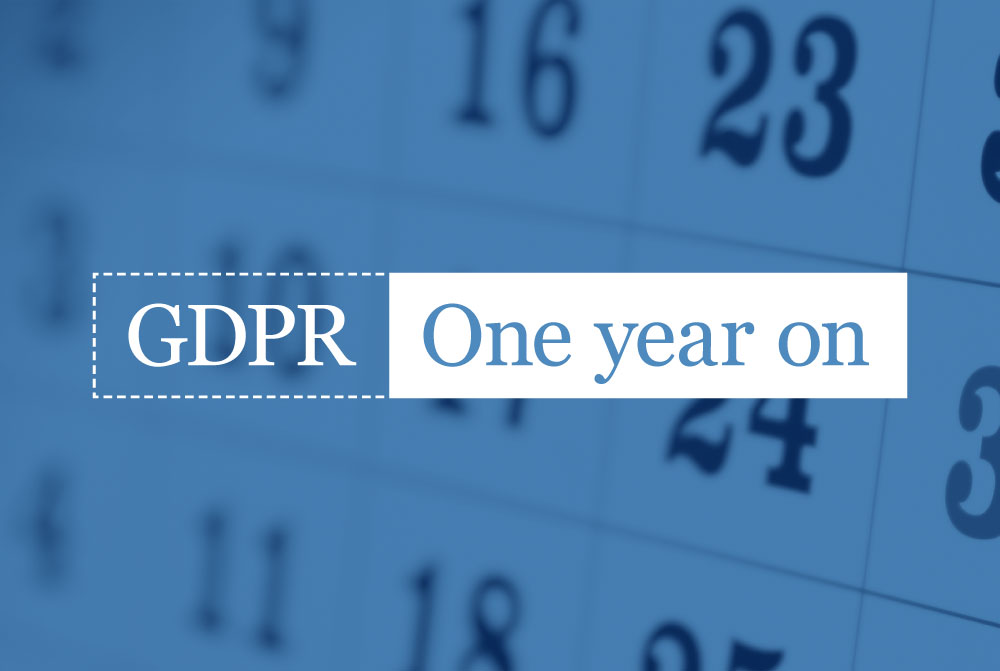30 May 2019 A blog by Elizabeth Denham, Information Commissioner Last May marked a seismic shift in privacy and information rights with the implementation of the General Data Protection Regulation (GDPR) and the Data Protection Act 2018. Today, we’re publishing an update to share our reflections and learnings from the past twelve months. The change in the regulatory landscape has shown the importance of getting privacy right. People have woken up to the new rights the GDPR delivers, with increased protection for the public and increased obligations for organisations. But…
Tag: Blog
Blog: Data protection doesn’t take a day off
Last year we began taking action against organisations for non-payment of the data protection fee, sending out a clear message that those who didn’t pay risked a fine. We stepped that up earlier this year when we began identifying organisations which had been issued with a fine, as well trend reports to show which sectors had been issued with fines. The recent dismissal of the first appeal of a fine for non-payment of the fee by Farrow and Ball sends a further message, loud and clear, that there is no…
Blog: Using biometric data in a fair, transparent and accountable manner
10 May 2019 As technology takes ever greater strides, so organisations and businesses are harnessing its capabilities to help manage their contact with customers, including using it for means of identification and authentication. While there are undoubtedly significant benefits in using new technologies, organisations need to be aware of the potential challenges when choosing and using any systems involving biometric data. In January 2017, HMRC adopted a voice authentication which asked callers to some of its helplines to record their voice as their password. A complaint from Big Brother Watch…
How to Monetize Your Blog or Website With Bitcoin Games
If you have a popular website, blog or even a large mailing list of people interested in cryptocurrencies or online games, there are a few ways to monetize your traffic. One quick and easy revenue-generating solution is to create a referral program that’s tailored to the interests of your audience. Also Read: How to Start Cloud Mining Bitcoin Cash Monetize Your Traffic With a Referral Program A referral program offers content creators the option to make money from their work, not by getting paid a few cents to display ads,…
Blog: Helping us strike the right balance between journalism and data protection
Privacy and freedom of expression are both fundamental rights that are equally vital to our society, democracy and way of life. But they can sometimes appear to be in conflict with each other. Our data protection laws aim to reconcile these rights and achieve a crucial balance. But it is important that those organisations engaged in journalism know how to apply the requirements and exemptions in practice. Respecting individuals’ rights and treating their personal data within the law is vital to maintaining the public’s trust, and this applies to journalism…
Blog: Data Protection law does not prevent information sharing to save lives and stop crime
12 April 2019 Steve Wood reminds public and private organisations that new data protection legislation does not stop them from disclosing personal data to assist police forces or other law enforcement authorities. It’s nearly eleven months since the UK’s new data protection legislation came into effect, giving organisations more responsibilities and giving citizens strengthened rights. In terms of data sharing the message is also one of continuity as the core considerations that existed under the previous legislation remain the same. We are aware that sometimes, organisations are hesitant to share…
Blog: Adtech fact finding forum shows consensus on need for change
There’s a well-quoted line from Steve Jobs, that as Apple CEO he didn’t employ smart people to tell them what to do, but so that they could tell him what to do. It was a line that came to mind as I looked round the busy room yesterday at the ICO’s adtech fact finding forum. We had more than a hundred people with something to say about adtech, from publishers to advertisers, from civil society to start-ups, from adtech firms to lawyers. As the regulator, I’m delighted we could bring…
Blog: Why the right of access to patient data needn’t be a headache for GPs
7 March 2019 A patient’s right to access their own medical records from their GP is a long-established principle supported and strengthened by data protection law, most recently the General Data Protection Regulation (GDPR). Under the updated data protection regime a patient’s request to access their records (commonly known as a subject access request (SAR) must now be processed free of charge and within one month. Requests on the rise Medical practices have reported a significant rise in SARs since the GDPR came into effect in May last year, which…
Blog: Advancing the adtech debate from a data protection perspective
Simon McDougall, Executive Director for Technology Policy and Innovation, invites adtech industry stakeholders to a fact-finding forum. Advertising is as old as commerce itself. Companies have always innovated to access new markets, and people are often happy to learn of new products and services. But in recent years, technology has completely transformed the way advertising is bought, sold and delivered. Many advertising techniques use people’s personal information, in the form of a personal profile, to decide which advert is delivered to them. Publishers then utilise real-time advertising methods to sell the…
Blog: Show you mean business by paying the Data Protection Fee
Paul Arnold, ICO Deputy Chief Executive explains to small businesses why they need to pay the data protection fee. Businesses that process personal data have to pay a fee to the data protection regulator, the Information Commissioner’s Office. It’s the law to pay the fee, which funds the ICO’s work, but it also makes good business sense. Because whether or not you’ve paid the fee could have an impact on your reputation. When you’ve paid, your business is published on our register of data controllers. Members of the public and other…








